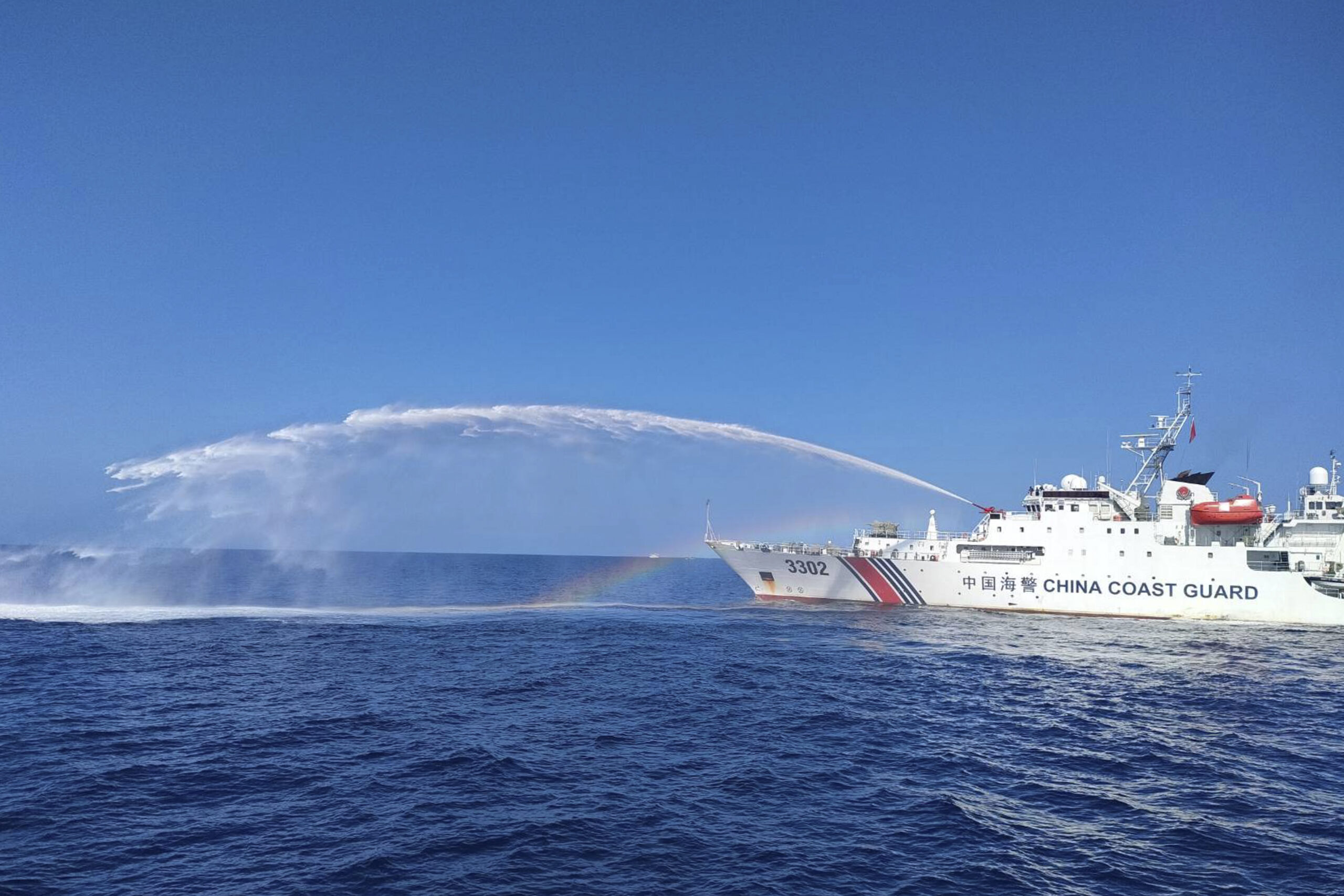
In this photo provided by the Philippine Coast Guard in December 2023, a Chinese Coast Guard ship uses its water cannons on a Philippine Bureau of Fisheries and Aquatic Resources (BFAR) vessel, as it approaches Scarborough Shoal in the disputed South China Sea —Philippine Coast Guard via AP, File
MANILA, Philippines — Norway has reiterated its position that conflicts in the South China Sea, being an international shipping lane, should be resolved peacefully and with due regard to applicable international law.
“Our belief is that if there are any conflicts, those should be resolved peacefully in accordance with the rules and regulations that apply,” Norwegian Ambassador to the Philippines Christian Lyster said at a conference in Makati City on Tuesday.
He added that Oslo was a “strong believer in the rule of law and that includes international law and the UN Convention on the Law of the Sea.”
READ: PH marks 8th anniversary of arbitral ruling on West Philippine Sea
According to Lyster, “when there is a ruling like the 2016 ruling, both parties should abide according to that ruling,” referring to the Permanent Court of Arbitration’s decision dismissing Beijing’s claim to most of the South China Sea.
Article continues after this advertisement
Norway is among the growing number of countries that have rejected China’s expansive “nine-dash line” and backed Manila’s plea for respect for the country’s exclusive economic zone and international borders.
Article continues after this advertisement
Agreement signed
Other countries which have expressed the same sentiments are France, Germany, Italy, Belgium, Netherlands, Poland, Romania, Spain, Czech Republic, Denmark, Finland and Sweden, among others.
On Tuesday, the Philippine Navy and Norwegian People’s Aid signed a memorandum of agreement on arms management and destruction, which Lyster said was “a key element in the internal and external security priorities of the Philippines.”
The Norwegian embassy in Manila also said the partnership would “help mitigate the risks of unplanned explosions, prevent illicit proliferation of small arms and light weapons and munitions, and support local and regional peace and stability initiatives.”
Oslo’s envoy made the remark as China again blamed the Philippines for another collision in the vicinity of Pag-asa (Thitu) Island last week.
“The truth is that Philippine official vessels sailed dangerously in waters under China’s jurisdiction and collided with a Chinese fishing boat conducting regular operation there. The behavior violates China’s sovereignty and gravely threatens the safety of Chinese fishing boats and crew,” said Beijing’s foreign office.
On Tuesday, the Bureau of Fisheries and Aquatic Resources (BFAR) said that a Chinese maritime militia vessel blocked the path of BRP Datu Cabaylo during its patrols on Oct. 11 and “deliberately sideswiped” the Philippine vessel.
BRP Datu Cabaylo sustained “minor dents” on its starboard bow, according to BFAR.
The incident happened five days before the Philippines and the United States began the annual Kamandag maritime exercises. —with a report from Jacob Lazaro
For comprehensive coverage, in-depth analysis, visit our special page for West Philippine Sea updates. Stay informed with articles, videos, and expert opinions.



































